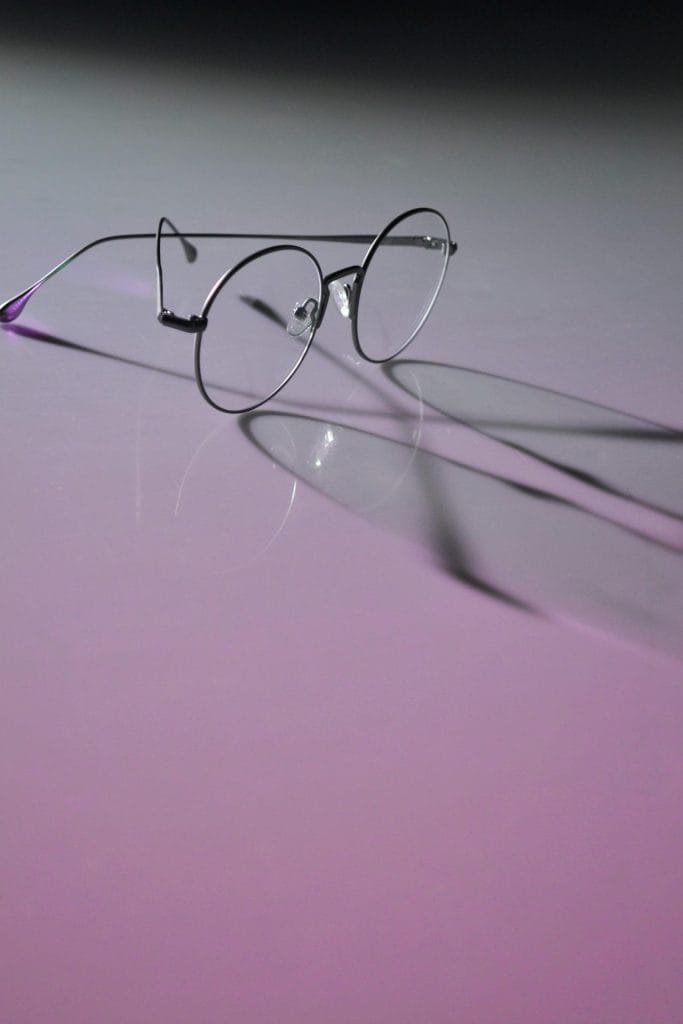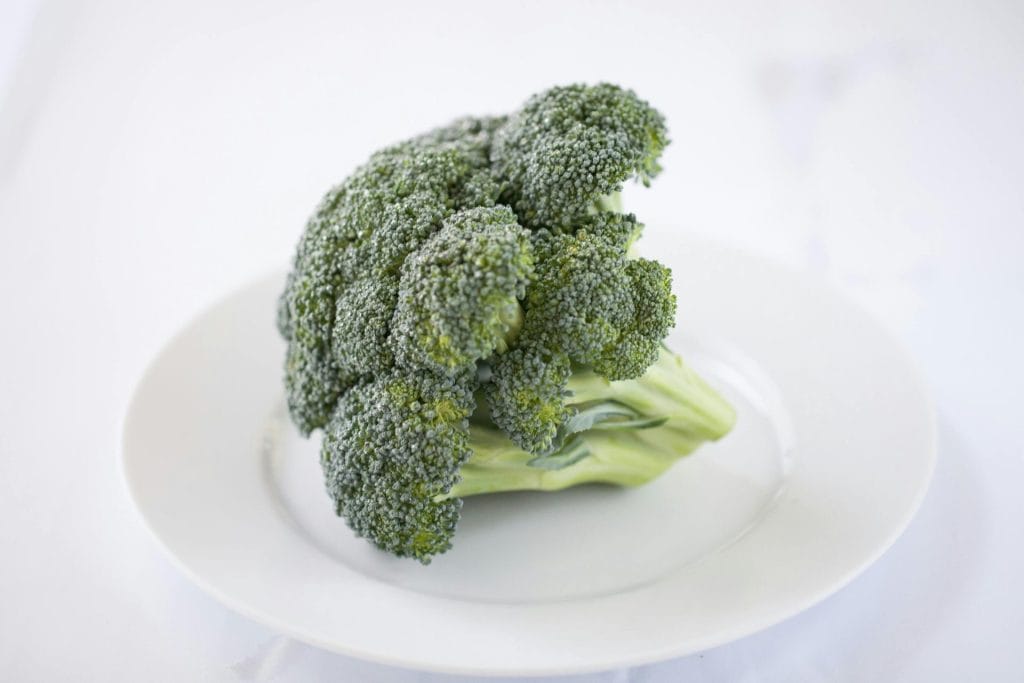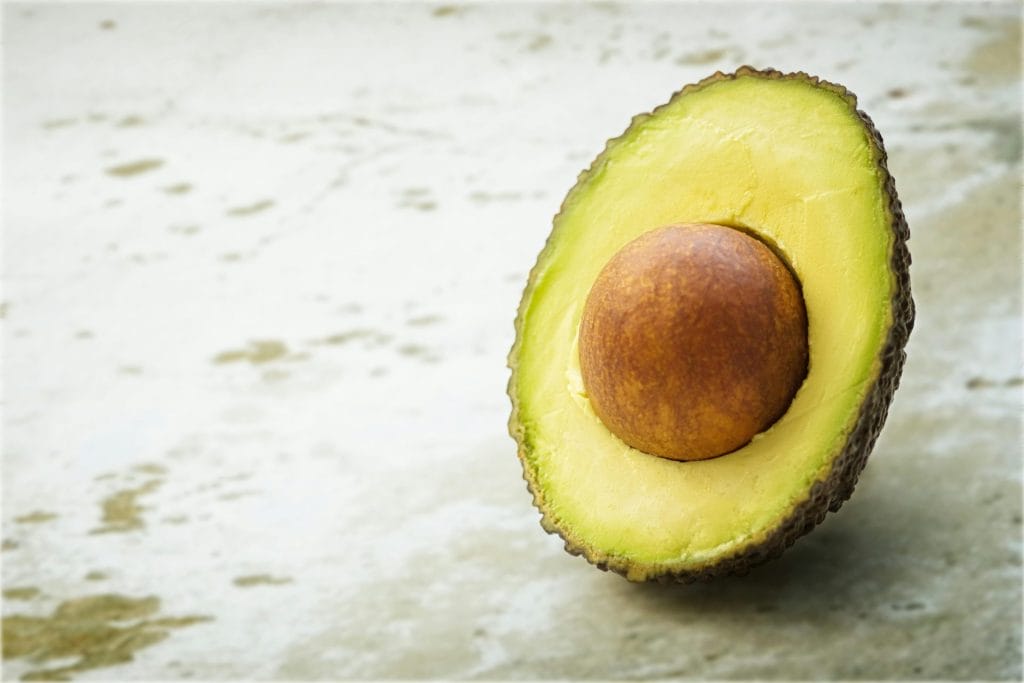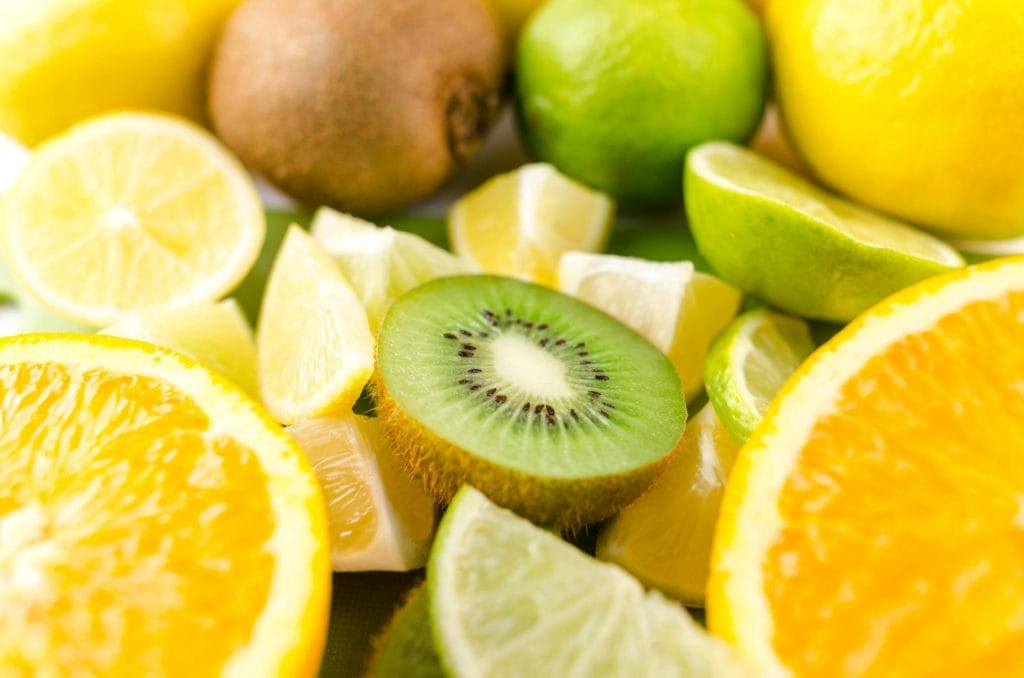Are you struggling with tired, dry eyes after long hours at your computer? Do you find yourself squinting at street signs at night or worry about your vision deteriorating with age? You’re not alone. In our digital world, millions of people experience eye strain, vision problems, and concerns about long-term eye health. The constant exposure to blue light from screens, aging, and nutritional deficiencies are taking a toll on our precious eyesight.
Here’s the reality that might shock you: Your eyes are working overtime in today’s demanding visual environment, and they’re not getting the nutritional support they desperately need. According to the CDC, approximately 12 million Americans aged 40 and older have vision impairment, including 1 million who are blind [15]. Many of these vision problems could be prevented or slowed with proper nutrition and targeted supplementation.

But there’s hope. The right combination of vitamins and supplements can transform your eye health, protect your vision, and help you see clearly for years to come. In this comprehensive guide, you’ll discover exactly which nutrients your eyes need, how to identify deficiency symptoms, and the best supplements to support your nutritional eyesight.
Understanding Your Eye Health Crisis
The Modern Eye Health Challenge
Your eyes face unprecedented challenges in the 21st century. Modern life is exhausting for your eyes. They work tirelessly every day, from scrolling through your phone to binge-watching your favorite series [7]. This constant visual stimulation, combined with poor dietary habits and aging, creates a perfect storm for vision problems.
Common Eye Health Problems You May Be Experiencing
- Digital Eye Strain: Burning, tired eyes after screen time
- Dry Eyes: Inability to produce adequate tears
- Night Vision Problems: Difficulty seeing in low light conditions
- Light Sensitivity: Discomfort in bright environments
- Blurred Vision: Difficulty focusing on objects
- Age-Related Vision Changes: Declining clarity and sharpness
The Hidden Culprit: Nutritional Deficiencies
One of the early signs of vitamin A deficiency is night blindness (nyctalopia). If you have night blindness, you have trouble seeing well in the dark, but you can see normally if enough light is present [11]. This is just one example of how nutrient deficiencies directly impact your vision.
Dry eyes could be a sign of vitamin D deficiency. When the eyes become dry as a result of low vitamin D levels, it may also become more difficult to produce tears. The eyes might feel gritty, sore or itchy and vision could become blurred [14].
Essential Vitamins for Optimal Eye Health
Vitamin A: The Vision Vitamin
Why Your Eyes Need It
Vitamin A is absolutely crucial for maintaining healthy vision. Vitamin A is crucial for maintaining good vision, especially at night. It helps the eyes produce rhodopsin, a pigment that improves vision in dim light, and supports a healthy cornea while preventing dry eyes and night blindness [11].

Signs of Deficiency
- Night blindness
- Dry eyes
- Corneal damage
- Foamy spots called Bitot spots may appear in the whites of your eyes [12]
Best Sources
- Dark leafy greens (spinach, kale)
- Orange vegetables (carrots, sweet potatoes, pumpkin)

- Orange fruits (cantaloupe, apricots)
- Dairy products and eggs
Recommended Dosage: 700-900 mcg per day for adults
Vitamin C: The Antioxidant Protector
Eye Health Benefits
Scientific evidence suggests vitamin C lowers the risk of developing cataracts and when taken in combination with other essential nutrients, it can slow the progression of age-related macular degeneration and visual acuity loss [6].
How It Works
- Protects against oxidative stress
- Supports collagen production in the cornea
- Reduces inflammation in eye tissues
- May prevent cataract formation
Best Sources
- Citrus fruits (oranges, grapefruit)
- Strawberries and berries
- Bell peppers
- Broccoli and leafy greens

Recommended Dosage: 65-90 mg daily, with higher doses (500mg) shown beneficial in eye health studies [1]
Vitamin E: The Cell Protector
Vitamin E protects cells in the eyes from unstable molecules called free radicals, which break down healthy tissue [8]. This powerful antioxidant is essential for maintaining healthy eye cell membranes and preventing age-related damage.
Key Benefits
- Protects against free radical damage
- Supports retinal health
- May reduce cataract risk
- Works synergistically with other antioxidants
Best Sources

- Nuts and seeds
- Vegetable oils (safflower, sunflower)
- Wheat germ
- Green leafy vegetables
Recommended Dosage: 15 mg daily for adults
Vitamin D: The Inflammation Fighter
Recent research has revealed vitamin D’s crucial role in eye health. Vitamin D is commonly associated with sun and skin health, it also plays a role in reducing eye inflammation, promoting tear secretion, and improving tear quality [13].
Benefits for Your Eyes
- Reduces dry eye symptoms
- Improves tear quality
- May protect against diabetic retinopathy
- Supports overall eye tissue health
Sources
- Sunlight exposure (15-20 minutes daily)
- Fatty fish (salmon, mackerel)
- Egg yolks
- Fortified foods
Recommended Dosage: 600-800 IU daily
Critical Minerals for Eye Health
Zinc: The Vision Transporter
Zinc plays a vital role in bringing vitamin A from the liver to the retina in order to produce melanin, a protective pigment in the eyes. Impaired vision, such as poor night vision and cloudy cataracts, has been linked to zinc deficiency [8].
Essential Functions
- Transports vitamin A to the retina
- Supports retinal health
- May prevent age-related macular degeneration
- Maintains proper eye structure
Best Sources
- Oysters and shellfish
- Red meat and poultry
- Nuts and seeds
- Legumes
Recommended Dosage: 8-11 mg daily
Selenium: The Antioxidant Enhancer
Selenium works as a powerful antioxidant cofactor, enhancing the effects of other nutrients. Selenium helps to protect the eyes from several eye conditions such as cataracts and age-related macular degeneration (AMD). Selenium deficiency is associated with red eyes, dry eyes, double vision, and bulging of the eyes [13].
Glam Dust
Radiant Skin – Luscious Hair – Pristine Nails
Vitamin Shots
The Ultimate Brain And Body Supplement
Vitamin Sprinkles
Fuel Your Brain – Nourish Your Body – With One Delicious Sprinkle
Powerful Carotenoids for Eye Protection
Lutein and Zeaxanthin: The Macular Defenders
These carotenoids are perhaps the most important nutrients for macular health. Lutein and zeaxanthin are found in high concentrations in the macula of the human eye, giving the macula its yellowish color. In fact, the macula also is called the “macula lutea” [10].
How They Protect Your Vision
Lutein and zeaxanthin have been demonstrated to function as blue light filters and antioxidants [1]
- Filter harmful blue light
- Reduce oxidative stress in the retina
- May improve visual performance
- Support macular pigment density
Research-Backed Benefits
The results showed that high doses of antioxidants vitamin C (500 mg), vitamin E (400 IU), and beta-carotene (15 mg/25,000 IU), along with zinc (8 mg), reduced the risk of vision loss from advanced age-related macular degeneration (AMD) in some, but not all, people with this disease [1].
Best Food Sources

- Dark leafy greens (kale, spinach)
- Corn
- Orange and yellow vegetables
- Egg yolks
Recommended Dosage: 10-20 mg lutein and 2-4 mg zeaxanthin daily
Omega-3 Fatty Acids: Essential for Eye Health
Why Your Eyes Need Omega-3s
Omega-3 fatty acids are important for proper visual development and retinal function. Studies in pre-term and full-term infants suggest that getting enough omega-3 fatty acids in the diet is essential for optimal visual development [10].
Key Benefits
- Support retinal function
- Reduce dry eye symptoms
- May prevent age-related macular degeneration
- Support tear film stability
Clinical Evidence
Multiple prospective randomized studies, including a 2019 meta-analysis in the journal Cornea, has shown that supplementing with omega-3 fatty acids can help relieve dry eyes when used for at least three months [8].
Best Sources
- Fatty fish (salmon, sardines, mackerel)
- Flaxseeds and chia seeds
- Walnuts
- Fish oil supplements

Recommended Dosage: 1000-2000 mg combined EPA and DHA daily
Choosing the Right Eye Health Supplements
What to Look for in Quality Eye Supplements
Essential Ingredients
- Third-Party Testing: Look for the USP- or NSF-verified labels on the bottle to indicate third-party testing has been done [5]
- Proper Dosages: Clinically studied amounts of each nutrient
- Bioavailable Forms: Easily absorbed by your body
Top-Rated Eye Health Supplements
1. Comprehensive Multi-Vitamin Eye Formulas
- Contain multiple eye-supporting nutrients
- Convenient single-dose options
2. Specialized Lutein/Zeaxanthin Supplements
- High concentrations of macular carotenoids
- Often combined with other antioxidants
- Ideal for macular health support
3. Omega-3 Eye Health Formulas
- Specifically designed for dry eye relief
- High EPA/DHA content
- Often combined with other eye nutrients
Supplement Safety Guidelines
Important Considerations
- Taking the recommended dosage is more important than using a specific brand [2]
- Consult with your healthcare provider before starting any supplement regimen
- Be aware of potential interactions with medications
- Start with lower doses to assess tolerance
Creating Your Personalized Eye Nutrition Plan
Step 1: Assess Your Current Eye Health
Ask Yourself:
- Do you experience frequent eye strain or fatigue?
- Have you noticed changes in your night vision?
- Do your eyes feel dry or irritated regularly?
- Are you at risk for age-related eye conditions?
Step 2: Identify Your Risk Factors
High-Risk Categories:
- Age 50 and older
- Extensive screen time (8+ hours daily)
- Family history of eye disease
- Smokers or former smokers
- Limited access to nutrient-rich foods
Step 3: Design Your Nutrition Strategy
Dietary Approach
- Prioritize whole foods rich in eye nutrients
- Include a variety of colorful fruits and vegetables
- Consume fatty fish 2-3 times per week
- Limit processed foods and excessive sugar
Supplementation Strategy
- Start with a high-quality multivitamin containing eye nutrients
- Add specific supplements based on your individual needs
- Include omega-3 supplements if fish intake is limited
Lifestyle Factors That Support Eye Health
Digital Eye Strain Prevention
The 20-20-20 Rule
- Every 20 minutes, look at something 20 feet away for 20 seconds
- Reduces eye muscle fatigue
- Helps prevent digital eye strain
Screen Optimization

- Adjust brightness to match surrounding environment
- Use blue light filtering glasses or screen filters
- Maintain proper distance from screens (arm’s length)
- Ensure adequate lighting in your workspace
Environmental Protection
UV Protection
- Wear sunglasses with 100% UV protection
- Choose wraparound styles for maximum coverage
- Protect eyes during outdoor activities
Air Quality Considerations
- Use humidifiers in dry environments
- Avoid direct exposure to fans or air vents
- Consider air purifiers to reduce irritants
Age-Specific Eye Health Recommendations
Young Adults (20-40 years)
Focus Areas:
- Digital eye strain prevention
- Establishing healthy eye nutrition habits
- Building antioxidant reserves
Recommended Supplements:
- Basic multivitamin with eye nutrients
- Omega-3 fatty acids
- Lutein/zeaxanthin for screen users
Middle Age (40-60 years)
Focus Areas:
- Preventing age-related changes
- Supporting macular health
- Maintaining tear production
Recommended Supplements:
- Comprehensive eye health formula
- Higher doses of antioxidants
- Specific carotenoid supplements
Seniors (60+ years)
Focus Areas:
- Age-related macular degeneration prevention
- Cataract risk reduction
- Overall vision preservation
Recommended Supplements:
- High-potency antioxidant combinations
- Regular monitoring with eye care professionals
Glam Dust
Radiant Skin – Luscious Hair – Pristine Nails
Vitamin Shots
The Ultimate Brain And Body Supplement
Vitamin Sprinkles
Fuel Your Brain – Nourish Your Body – With One Delicious Sprinkle
Special Considerations for Specific Conditions
Dry Eye Disease
Nutritional Support:
- Omega-3 fatty acids (1000-2000mg daily)
- Vitamin D supplementation
- Adequate vitamin A intake
Additional Strategies:
- Increase humidity in living spaces
- Use preservative-free artificial tears
- Limit screen time when possible
Age-Related Macular Degeneration Risk
Key Nutrients:
- High-dose antioxidant combinations
- Lutein and zeaxanthin supplementation
Diabetic Eye Health
Special Considerations:
- Strict blood sugar control
- Enhanced antioxidant support
- Regular comprehensive eye exams
There is an inverse relationship between vitamin D levels and DR prevalence; and the lower the vitamin D level, the more severe the retinopathy [13]
Common Myths and Misconceptions
Myth 1: “Carrots Are All You Need for Good Vision”
The Truth: While carrots are excellent for vision, they’re only part of the picture – a diverse range of nutrients is essential for comprehensive eye health.
Myth 2: “Supplements Can Replace a Healthy Diet”
The Truth: If you eat a balanced diet, your eyes should be getting all of the nutrients they need. It’s fine to take a daily vitamin and mineral supplement, but supplements aren’t a substitute for a healthy diet [10].
Myth 3: “Eye Problems Are Inevitable with Age”
The Truth: While age increases risk, proper nutrition and lifestyle choices can significantly slow or prevent many age-related eye conditions.
Monitoring Your Progress
Signs Your Eye Nutrition Plan Is Working
Positive Changes to Watch For:
- Reduced eye strain and fatigue
- Improved night vision
- Less dry eye symptoms
- Better visual comfort during screen time
- Enhanced overall visual clarity
When to Adjust Your Approach
Red Flags:
- Persistent or worsening symptoms
- New vision changes
- Side effects from supplements
- No improvement after 3-6 months
Regular Eye Health Assessments
Recommended Schedule:
- Annual comprehensive eye exams
- More frequent monitoring if high-risk
- Regular communication with your eye care professional
- Nutritional assessments when needed
The Science Behind Eye Nutrition Research
Landmark Studies
Studies have provided crucial evidence for eye nutrition supplementation. The results showed that high doses of antioxidants vitamin C (500 mg), vitamin E (400 IU), and beta-carotene (15 mg/25,000 IU), along with zinc (8 mg), reduced the risk of vision loss from advanced age-related macular degeneration (AMD) in some, but not all, people with this disease [1].
Recent Research Developments
Ongoing studies continue to refine our understanding of eye nutrition. Previous clinical studies have demonstrated the benefits of daily supplementation with macular xanthophylls for improving MPOD and visual performance [9].
Understanding the Research Limitations
Important Considerations:
- Most studies focus on specific populations
- Individual responses may vary
- Long-term effects still being studied
- Combination therapies show the most promise
Building Your Eye-Healthy Kitchen
Essential Foods to Stock
Leafy Greens
- Spinach, kale, collard greens
- Rich in lutein and zeaxanthin
- Versatile for smoothies, salads, and cooking
Colorful Fruits and Vegetables
- Orange and yellow produce
- Berries and citrus fruits
- Bell peppers and tomatoes
Healthy Fats
- Fatty fish (salmon, sardines, mackerel)
- Nuts and seeds
- Avocados and olive oil

Whole Grains and Legumes
- Quinoa, brown rice, oats
- Beans, lentils, chickpeas
- Rich in B vitamins and minerals
Meal Planning for Eye Health
Sample Daily Menu
Breakfast:
- Spinach and berry smoothie with flaxseeds
- Fortified whole grain cereal with milk
- Orange slices

Lunch:
- Kale Caesar salad with grilled salmon
- Sweet potato wedges
- Mixed berry yogurt
Dinner:
- Grilled mackerel with herbs
- Steamed broccoli and carrots
- Quinoa pilaf with nuts
Snacks:
- Handful of walnuts
- Sliced bell peppers with hummus
- Dark chocolate (in moderation)
Cost-Effective Eye Health Strategies
Budget-Friendly Nutrition Tips
Smart Shopping:
- Buy frozen vegetables and fruits
- Purchase seasonal produce
- Consider generic vitamin supplements
- Buy fish when on sale and freeze

Maximize Nutrient Absorption:
- Pair carotenoids with healthy fats
- Take fat-soluble vitamins with meals
- Don’t exceed recommended dosages
- Store supplements properly
When to Invest in Premium Options
Worth the Extra Cost:
- Third-party tested supplements
- Organic produce when possible (especially for the “dirty dozen”)
- Wild-caught fish vs. farmed
- Specialized eye health formulas with clinical backing
Glam Dust
Radiant Skin – Luscious Hair – Pristine Nails
Vitamin Shots
The Ultimate Brain And Body Supplement
Vitamin Sprinkles
Fuel Your Brain – Nourish Your Body – With One Delicious Sprinkle
Working with Healthcare Professionals
When to Consult an Eye Care Professional
Immediate Attention Needed:
- Sudden vision changes
- Severe eye pain
- Flashing lights or floaters
- Signs of infection
Regular Monitoring:
- Annual comprehensive eye exams
- Nutritional status assessments
- Supplement regimen reviews
- Risk factor evaluations
Questions to Ask Your Eye Doctor
About Supplements:
- Are eye health supplements right for me?
- Which specific nutrients should I focus on?
- How do my medications interact with supplements?
- What dosages are appropriate for my situation?
About Nutrition:
- Is my current diet supporting my eye health?
- Do I have any nutritional deficiencies?
- How can I optimize my eye nutrition plan?
- What lifestyle changes would benefit my vision?
Nutritional Supplements for Eye Health and Vision Support
Nutritional supplements play a vital role in supporting healthy vision and maintaining good eye health [2]. The National Eye Institute has conducted extensive research on eye health supplements, which are vision supplements for macular health and eye conditions such as AMD in one eye or both eyes [1]. Eye vitamin blends and dietary supplements for eyes often include essential nutrients like lutein and zeaxanthin supplements, vitamins C and E, and other vitamins and minerals that may reduce the risk of vision loss and support healthy vision [3]. For those with vision and eye health conditions, supplements for eye health may help slow progression and improve eye function [4]. These vision health nutrients can help protect your eyes, maintain the health of blood vessels, and support a healthy diet for eye health.
Eye Vitamins, AREDS2, and Healthy Vision Maintenance

Vitamins for your eyes and eye health supplements are designed to provide the nutrients they need for maintaining healthy vision and eyesight [5]. Look for supplements family of nutrients that offers antioxidant properties, and lutein and zeaxanthin also help protect your macular health [6]. These supplements for vision contain certain vitamins and minerals that may help slow vision loss in AMD in one or both eyes [1]. Eye doctor recommendations often include nutrients for eye health that support your eye health goals and improve vision when combined with a healthy diet [7]. Although supplements are not a cure, certain nutrients and vitamins can support your overall health, protect your eyes, and help you achieve your health goals [8]. The Food and Drug Administration has evaluated many vision supplements to ensure they are good for your eyes and help support a healthy lifestyle [9].
Future Trends in Eye Nutrition
Emerging Research Areas
Personalized Nutrition:
- Genetic testing for supplement recommendations
- Customized nutrition plans based on individual risk factors
- Precision medicine approaches to eye health
Novel Nutrients:
- New carotenoids and antioxidants
- Synergistic nutrient combinations
- Innovative delivery methods
Technology Integration:
- Apps for tracking eye health symptoms
- Digital tools for supplement management
- Telemedicine for eye health monitoring
Staying Informed
Reliable Sources:
- Peer-reviewed scientific journals
- Professional eye care organizations
- Registered dietitians specializing in eye health
- Your healthcare team
Conclusion
Your vision is one of your most precious assets, and taking proactive steps to protect it through proper nutrition and supplementation can make a profound difference in your quality of life. The science is clear: the right combination of vitamins, minerals, and nutrients can help prevent vision loss, reduce eye strain, and support long-term eye health [1,6,8].
Key takeaways from this comprehensive guide:
Essential nutrients for eye health include vitamin A for night vision, vitamin C and E for antioxidant protection, lutein and zeaxanthin for macular support, omega-3 fatty acids for dry eye relief, and zinc for overall eye function [10]. These nutrients work synergistically to protect your eyes from oxidative stress, support healthy tear production, and maintain optimal visual performance.
Nutritional deficiencies can have serious consequences for your vision, from night blindness and dry eyes to increased risk of age-related macular degeneration and cataracts [11,14]. By addressing these deficiencies through targeted nutrition and supplementation, you can significantly reduce your risk of vision problems.
A comprehensive approach works best, combining a nutrient-rich diet with high-quality supplements when needed. Omega-3 supplements can provide significant relief for dry eye symptoms [8].
Individual needs vary based on age, lifestyle, health status, and risk factors. Working with healthcare professionals to develop a personalized eye nutrition plan ensures you’re getting the right nutrients in the appropriate amounts for your specific situation.
Remember, the earlier you start supporting your eye health with proper nutrition, the better your chances of maintaining clear, comfortable vision throughout your life. Your eyes work hard for you every day – give them the nutritional support they deserve, and they’ll continue to serve you well for years to come.
Frequently Asked Questions (FAQ)
What are the most important vitamins for eye health?
The most crucial vitamins for eye health include vitamin A (essential for night vision and preventing dry eyes), vitamin C (protects against cataracts and supports overall eye tissue health), vitamin E (protects cells from free radical damage), and vitamin D (reduces inflammation and supports tear production) [11,6,8,13]. These work together with minerals like zinc and carotenoids like lutein and zeaxanthin to provide comprehensive eye protection.
Can vitamin supplements really improve my vision?
While supplements cannot cure existing vision problems or replace prescription eyewear, they can help prevent further vision loss and support overall eye health. Research shows that specific nutrient combinations can reduce the risk of advanced age-related macular degeneration by up to 19% [1]. Supplements are most effective when used as part of a comprehensive eye health strategy that includes regular eye exams and a healthy lifestyle.
Which vitamin deficiency causes dry eyes?
Multiple vitamin deficiencies can contribute to dry eyes, including vitamin A, vitamin D, and vitamin B12 [11,14]. Vitamin A deficiency is particularly problematic as it affects tear production and corneal health. Vitamin D deficiency can increase eye inflammation and reduce tear quality. Omega-3 fatty acid deficiency is also strongly linked to dry eye symptoms [8]. Addressing these deficiencies through diet and supplementation can significantly improve dry eye symptoms.
How long does it take for eye supplements to work?
Most people begin to notice improvements in eye comfort and symptoms within 3-6 months of consistent supplementation [9]. However, the timeline varies depending on the specific condition and severity of nutrient deficiencies. For dry eye relief with omega-3 supplements, improvements may be seen in 6-12 weeks. For macular health support with lutein and zeaxanthin, it may take 3-6 months to see measurable improvements in macular pigment density.
Are there any side effects from taking eye health supplements?
Most eye health supplements are well-tolerated when taken as directed. However, potential side effects can include digestive upset (especially with high-dose vitamin C or omega-3s), headaches, or skin discoloration with excessive beta-carotene intake [2]. It’s important not to exceed recommended dosages, as fat-soluble vitamins (A, D, E, K) can accumulate in the body. Always consult with a healthcare provider before starting any supplement regimen, especially if you take medications or have health conditions.
Can I get all the eye nutrients I need from food alone?
While a well-balanced diet rich in fruits, vegetables, and healthy fats provides many essential eye nutrients, it can be challenging to get optimal amounts of specific nutrients like lutein, zeaxanthin, and omega-3 fatty acids from food alone [10]. Factors like soil depletion, food processing, and individual absorption differences may also affect nutrient availability. Most eye care professionals recommend a combination of nutrient-rich foods and targeted supplementation for optimal eye health support.
What foods are best for eye health?
The best foods for eye health include dark leafy greens (spinach, kale) rich in lutein and zeaxanthin, orange and yellow vegetables (carrots, sweet potatoes) high in beta-carotene, fatty fish (salmon, sardines) providing omega-3 fatty acids, citrus fruits offering vitamin C, nuts and seeds containing vitamin E and healthy fats, and eggs which provide lutein, zeaxanthin, and vitamin A [7]. Aim for a colorful variety of fruits and vegetables to ensure comprehensive nutrient intake.
Should older adults take different eye supplements than younger people?
Yes, eye health needs change with age. Younger adults may benefit from basic antioxidant support and nutrients to combat digital eye strain. Adults over 50 should consider more comprehensive formulations if they’re at risk for age-related macular degeneration [1]. Older adults may also need higher doses of certain nutrients due to decreased absorption and increased oxidative stress. Regular consultation with an eye care professional can help determine age-appropriate supplementation strategies.
Do blue light glasses work better than eye health supplements?
Blue light glasses and eye health supplements work differently and can complement each other. Blue light glasses filter potentially harmful blue light from digital screens, providing immediate protection during screen use. Eye health supplements work internally to strengthen eye tissues, improve antioxidant defenses, and support overall eye function over time [4]. For comprehensive digital eye protection, combining blue light filtering with proper eye nutrition provides the best approach.
How do I know if I have a vitamin deficiency affecting my eyes?
Common signs of vitamin deficiencies affecting the eyes include night blindness or difficulty seeing in low light (vitamin A deficiency), dry, gritty eyes (vitamins A, D, or omega-3 deficiency), increased light sensitivity, slow adaptation to darkness, frequent eye infections, or changes in color vision [11,14]. If you experience any persistent eye symptoms, consult with an eye care professional who can perform appropriate tests to assess your nutritional status and eye health.
References
[1] Age-Related Eye Disease Study 2 Research Group. (2013). Lutein + zeaxanthin and omega-3 fatty acids for age-related macular degeneration: the Age-Related Eye Disease Study 2 (AREDS2) randomized clinical trial. JAMA, 309(19), 2005-2015.
[2] WebMD. (2025). Supplements for Vision and Healthy Eyes. Retrieved from https://www.webmd.com/eye-health/vision-supplements
[3] Consumer Health Digest. (2025). 21 Best Vitamins and Supplements for Eye Health 2025, According To Doctors. Retrieved from https://www.consumerhealthdigest.com/eye-skin-care/best-supplements-for-eye-health.html
[4] Daysoft. (2025). The best vitamins and supplements for eye health. Retrieved from https://us.daysoft.com/blogs/news/best-vitamins-and-supplements-for-eye-health
[5] U.S. News & World Report. (2025). Best Eye Vitamins: Top Pharmacist-Ranked Brands for 2025. Retrieved from https://health.usnews.com/otc/rankings/eye-vitamins
[6] Mayo Clinic Press. (2024). The best vitamins for your eyes. Retrieved from https://mcpress.mayoclinic.org/living-well/the-best-vitamins-for-your-eyes/
[7] Prevention Magazine. (2025). The Best Vitamins and Foods to Eat for Eye Health, Per Experts. Retrieved from https://www.prevention.com/food-nutrition/a65498961/best-vitamins-food-to-eat-for-eye-health/
[8] GoodRx. (2024). The 6 Best Vitamins for Eye Health. Retrieved from https://www.goodrx.com/health-topic/eye/vitamins-for-eye-health
[9] Health Insiders. (2025). Best Vitamins and Supplements for Healthy Eyes In 2025. Retrieved from https://www.healthinsiders.com/best-eye-supplements
[10] American Optometric Association. (2025). Diet and Nutrition. Retrieved from https://www.aoa.org/healthy-eyes/caring-for-your-eyes/diet-and-nutrition
[11] Cleveland Clinic. (2023). Vitamin A Deficiency: Causes, Symptoms, Treatment & Prevention. Retrieved from https://my.clevelandclinic.org/health/diseases/23107-vitamin-a-deficiency
[12] Cleveland Clinic. (2023). Xerophthalmia: Symptoms, Causes & Treatment. Retrieved from https://my.clevelandclinic.org/health/diseases/24430-xerophthalmia
[13] National Center for Biotechnology Information. (2023). Association Between Vitamin Deficiencies and Ophthalmological Conditions. PMC10363387.
[14] Total Vision. (2024). Which Vitamin Deficiency Causes Dry Eyes? Retrieved from https://laeyecare.net/which-vitamin-deficiency-causes-dry-eyes/
[15] World Health Organization. (2025). Vitamin A deficiency. Retrieved from https://www.who.int/data/nutrition/nlis/info/vitamin-a-deficiency








.png)
